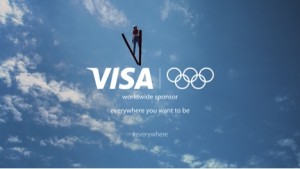Taglines: A Sign of the Times or a Pastime?
Be brief or be gone. This is something we’ve all probably heard directly or indirectly as we’ve acclimated to various workplaces. Everyone, especially management, is pressed for time. So much so that more and more people have started referring to time as their “most precious resource.” But, in a constantly connected world, how long is long enough and how short is too short? Advertisers seem to be trying to answer this very question.
Recently, Visa Inc. announced that it would be retiring its global tagline “Go” and resurrecting a shorter version of a tagline that the Company previously used in the United States (Elliott, 2014). Visa’s “new” global tagline is “Everywhere you want to be.” This may sound familiar to many of you since the Company previously used “It’s everywhere you want to be” for their tagline in the U.S. While the removal of a single word may not seem that significant, the decision supports a trend towards shorter taglines—a trend supported by a variety of companies including Alka Seltzer and Masterpiece Theatre who have cut a word or words out of their taglines recently (Elliott, 2014).
While some companies have tightened taglines to accommodate a world that is short on time, the trend of tightened taglines began well before this year and last. For instance, Dodge changed its ad slogan from “Grab life by the horns” to “Grab life” in 2007 (Wert, 2007). The transition had a different motive associated with it—to attract more women to the brand. Coke also transitioned to a more inclusive tagline in 2009—Open Happiness—to broaden its appeal (Yohn, 2013). Coke chose this short and sweet tagline to keep up with brands that were transitioning away from declarative statements in their taglines and towards lines that were more inviting (Yohn, 2013).
Whether a brand is shortening its tagline to save its audience time, to market to a new audience or to appeal to the changing needs of its audience, the fact is that brands have been shortening taglines for years—some brands, such as Starbucks and Apple, even to the point that they don’t have one (Yohn, 2013).
As a consumer, do you think taglines are trying to keep up with us or dying all together? Please share some of the taglines you find most memorable and the years they were launched. Maybe our perceptions of taglines have changed over the years and we’ve been too busy to even notice…
References
Elliott, S. (2014). Visa trims slogan to expand meaning. The New York Times. http://www.nytimes.com/2014/01/13/business/media/visa-trims-slogan-to-expand-meaning.html?hpw&rref=business&_r=0
Wert, R. (2007). Dodge needs women: Chrysler brand shortens slogan for her pleasure. Jalopnik.com. http://jalopnik.com/251767/dodge-needs-women-chrysler-brand-shortens-slogan-for-her-pleasure
Yohn, D.L. (2013). The Death of the tagline: Flexible branding is the new name of the game. Adweek.com. http://www.adweek.com/news/advertising-branding/death-tagline-152255


6 Responses to Taglines (by Erika White)